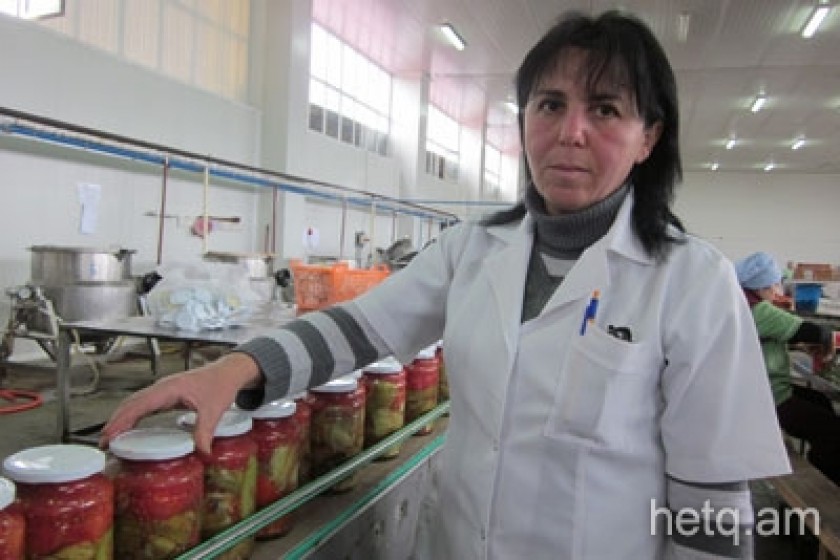
“Made in Artsakh” Label Sometimes Hurts Exports
Artsakh Fruit is a company established in 2008.
It produces over 30 brands of vegetable preserves and fruit jams and jellies. Production Manager Karine Hakobyan says the company tries to use produce grown by local farmers and villagers.
“Domestic produce doesn’t meet our demands so every year we are forced to import produce we can’t grow here or which is in short supply,” says Mrs Hakobyan.
The company employs 140 workers, 90 of which are in the production unit. Hakobyan says there is a yearly shortage of workers as well.
She says that despite the lack of decent jobs in Artsakh it’s disquieting to see that many here don’t want to work.
“Maybe it’s because the work is seasonal, but isn’t it better to work 8 months out of the year than not at all? Maybe it’s because the custom here is that women shouldn’t work but stay at home. Then again, some women just can’t get used to the schedule. In the peak season, we work on three shifts but we let the workers decide what hours they want.”
Workers get paid on a piecemeal basis – 60 Drams for every package.
There’s been a marked increase in the market price for fresh berries.
Hakobyan says that the price of one kilo of blackberries on the market has risen from 200-250 AMD last year to 400-500 this year. This has led to a price increase in the finished product as well.
Prices have also risen in auxiliary ingredients too – oil, sugar, tomato paste, salt, etc.
Artsakh Fruit products are exported to Armenia, Russia, France, Ukraine, Dubai and Hungary. Russia is the largest importer in terms of quantity.
Hakboyan says the number of outside orders is increasing but given their production capacity the company just wants to keep the customer base it now enjoys.
I asked her if the “Made in Artsakh” label every created any difficulties in terms of exportation.
She said that there had been a problem with a Hungarian customer but that it was eventually ironed-out.
“The Azerbaijani press actively raised the issue as to whether or not we have the right to use the Artsakh appellation since our country isn’t recognized internationally. All the ballyhoo naturally hurt us,” says the plant manager, adding that some countries have refused to buy from them due to political considerations.
 Videos
Videos Photos
Photos




Write a comment